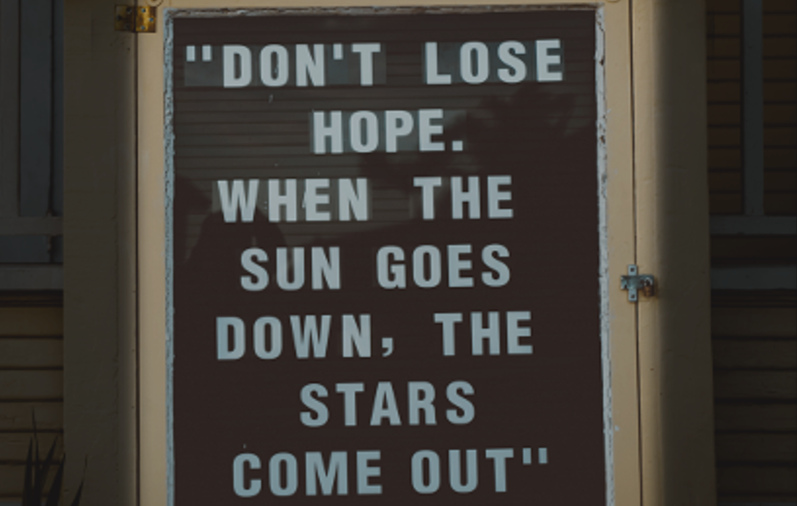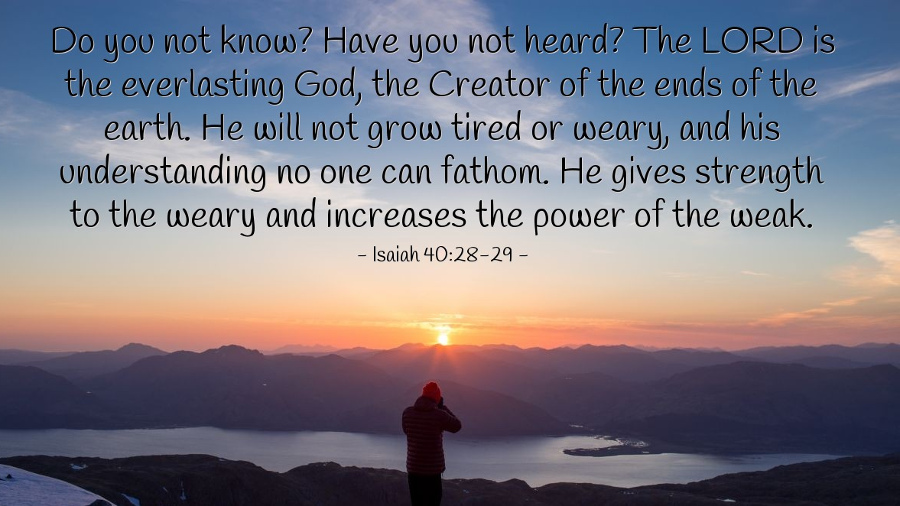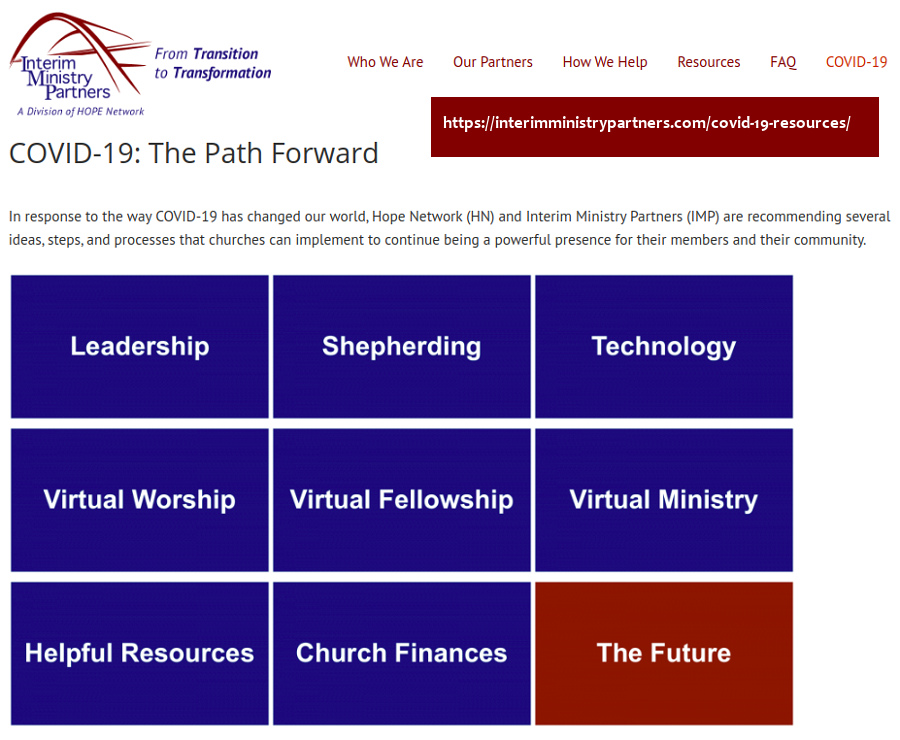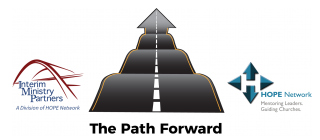Over the last three months, most churches have grappled with the logistics of getting their church services, small groups, Bible classes, and leadership meetings online. Many had been hoping not only to bless their congregations but also to reach their communities. These aspirations to share Jesus, bless his people, and reach the lost, were well-intentioned and rooted in the Great Commission of Jesus (Matthew 28:18-20).
As "virtual church" began its necessary run, many churches and ministers were initially very excited with the numbers they thought that they were seeing. Many preachers, pastors, and church leaders, initially thought they were having significantly more online guests than people who regularly filled their church buildings on Sunday mornings. Thankfully, a number of these churches had several weeks of outstanding offerings as they moved to more online giving and bank-to-bank direct transfers of donated funds. Their buildings might be closed, but their churches were still open and living out their mission.
As familiar church routines were absorbed into the new normal of quarantine living and virtual church, giving numbers declined as members lost jobs, and others simply lost interest in giving to their congregations. Many re-routed their giving to what they felt were more pressing needs - taking care of needy friends and family or giving to food banks and hunger relief ministries.
As giving declined, online viewership also began to dip. As churches became savvier about the online world, they took a closer look at the real numbers from their earlier virtual audiences. This more informed review revealed that many churches had grossly overestimated their online numbers. They had not known how to assess the counts that they received from their website, Facebook® Live broadcasts, and YouTube® worship experiences. Many discovered they had been counting views - the equivalent to people driving through their parking lots - instead of real engagements in their services.

As the weeks of social distancing continued, the new reality of the church experience and the challenge of lower numbers began a slow leak of discouragement into the hearts of our preachers, pastors, elders, deacons, and ministers. Their numbers were wrong and much lower than they had initially thought. They also missed being with their people. They were paying bills for empty buildings. Cash flow became a growing concern. They couldn't visit their people in the hospital or minister to them personally - at least not like they had in the past. Funerals and quality ministry to the bereaved made grief care difficult, if not impossible.
Exhausted, Concerned, and Discouraged with More to Do
As all these other realities of our isolation sunk into their hearts, many of our church leaders also began suffering from "virtual ministry fatigue" - the fatigue from too many Zoom® and video conference meetings. Leaders did not have enough time in the real presence of people. They mourned the loss of physical touch. They deeply missed the experiences and richness of their regular face-to-face conversations. As one leader asked me, "How do I lead a church, I can't see!?"
Many of our most gifted church leaders have also been madly scrambling the last three months, trying to learn a host of new skills. Suddenly, they had to become experts on cameras, lighting, sound, recording, editing, encoding, uploading, communicating content availability, evaluating productions and their impact, and counting the number of actively engaged people in their virtual services. The first Zoom meeting memes and jokes about the awkwardness of online gatherings were humorous. Now, however, they have become a tired, stale reality. All the interconnected and demanding changes were suddenly thrust on most church leaders unprepared for such rapid and unexpected adaptive change.
In visiting with several dozen preachers, ministers, elders, and pastors, I have asked specific questions about how they are doing. Finally, I asked them to rate where they were doing emotionally on a scale of 1-to-10 - 1 is awful, and 10 is great. One of these servants of Jesus said he was probably about a 5. ALL the rest rated themselves in the 2-3 range!
I knew church leaders were struggling, but these honest, gut-level responses, often with tears in their eyes as we video conferenced, were shocking. They were exhausted, stressed, and feeling incredible amounts of pressure to keep their churches going, their people informed, their ministries on track while trying to use all sorts of tools that were new to them. Some mourned the lost their church momentum before COVID-19 hit. One volunteered that his wife had asked to stay with her mother so she could have help with their children because he was too busy to help her.

The New Hill to Climb
Weary and discouraged church leaders are now trying to re-open their buildings for worship services but with new (more costly and exhausting) necessary cleanliness criteria. And, they are trying to be excited about the re-opening while carrying their concerns and weariness in silence. They are doing this work without any certainty of how long their return to services at the church building will last. Church leaders wonder if - or when - they might be forced to go back to the quarantined all virtual format, and then have to repeat their re-opening. Other leaders see their numbers for member-engagement, genuine outreach, and financial support far from robust and declining and unsure if they even have a post-COVID-19 future.
Based on congregational polls, church leaders have learned that many in their congregations are hesitant to return for fear of exposure to the virus. Some have heard reports about church worship with congregational singing being associated with more dangerous gathering places for the spread of the virus. These church surveys are finding that those who seem most anxious and adamant to return are some of their most vulnerable members to infection. One church leader told me, "We have members who are adamant that we open back up but say they won't be coming till things settle down with the virus!"
Maybe most troublesome to church leaders is the growing realization that everyone is out of the church-going habit. Significant numbers of dedicated church folks have now discovered that they genuinely enjoy virtual church at home with family in the comfort of their TV room. They have found that they enjoy Communion services in a less rushed and more intimate environment with family or close friends.
While not wanting to admit feelings about not wanting to return to worship publicly, some are unsure they will return any time soon to a church building to gather with other believers. The bottom line for church leaders today is clear: they will need to provide both virtual and on-site services for their congregations. They also realize that these added requirements will need to be boot-strapped into place by tired ministry staff and volunteers, worn-out elderships, and weary deacon groups, often with less money available to do ministry.
How will church leaders and their families survive such stress?
What hope can we give these precious servants of God?
What are church leaders supposed to do in the vortex of all of this adaptive change?

A Call to Refocus on God and a Commitment to Provide Resources
Let's begin with a reminder of the source of our strength: God is the great I AM, the One who is and was and is to come!
Moses said to God, "Suppose I go to the Israelites and say to them, 'The God of your fathers has sent me to you,' and they ask me, 'What is his name?' Then what shall I tell them?"God said to Moses, "I AM who I AM. This is what you are to say to the Israelites: 'I AM has sent me to you'" (Exodus 3:13-14).
"I AM the Alpha and the Omega," says the Lord God, "who is, and who was, and who is to come, the Almighty" (Revelation 1:8).
God has led his people through all the ups, downs, twists, turns, and volatility of our capricious world has thrown at them. Let's remember how God has led his people throughout history - slavery and abuse in Egypt, wanderings in the wilderness, overcoming strong and fortified enemies, evil leaders, faithless religious leaders, persecutions, scattering among the nations, and the lukewarm attitude of his people. Because of our God, we as a people have not only endured, but thrived, influenced, blessed, and saved millions from starvation, disease, death, oppression, sin, death, and hell.
Our God is as faithful as he is full of righteous character and gracious compassion (Exodus 34:6; Psalm 103:8; Nehemiah 9:17). He will not abandon or forsake us (Hebrews 13:5-6). Jesus, who gave himself to save us, will not abandon us (Romans 8:32-39). Our Lord has not left us alone to figure out how we are to live as his bodily presence in our changing world (Psalm 46:1-3, 7, 10-11). As church leaders, it is time for us to believe, trust, and lean into God's power, Jesus' love, and the Spirit's guidance for us as we have urged other people to do (2 Corinthians 13:14). In other words, it's time for us to remind ourselves of all of those sermons we've preached, lessons we've taught, and counsel we've given to others (1 Corinthians 9:27), and appropriate those messages to ourselves.
More than just good, right, and positive words about God's greatness, we also need a sound strategy rooted in the Scriptures. Our biblical strategies will help us address our current crisis of living our faith. We also need practical strategic advice on how to negotiate the new virtual and online landscape we now inhabit.
At Heartlight.org and VerseoftheDay.com we are committed to provide resources that help all of us think through biblical strategy and rethink our approach to online and virtual ministry. Over the next eight weeks, we will provide a biblically-rooted strategy for navigating our current online world using the book of Acts as a guide and source of inspiration. Also, Lee Wilson will be sharing his experience, advice, and insight on how we can more effectively minister in the virtual world through proven online strategies. We hope you will join us as we face the challenge of sharing Jesus in a world of deep need in our ever-changing world.















Comments
Have thoughts on this article? Leave a comment